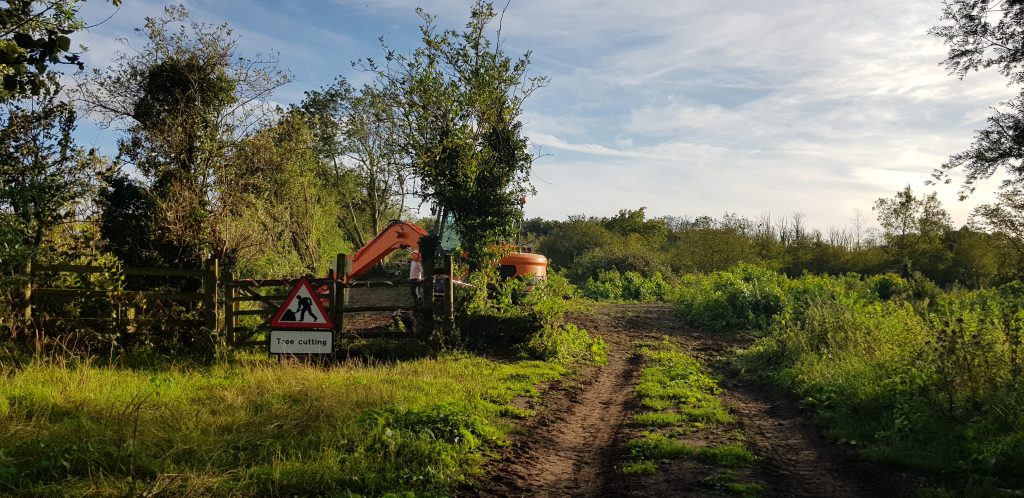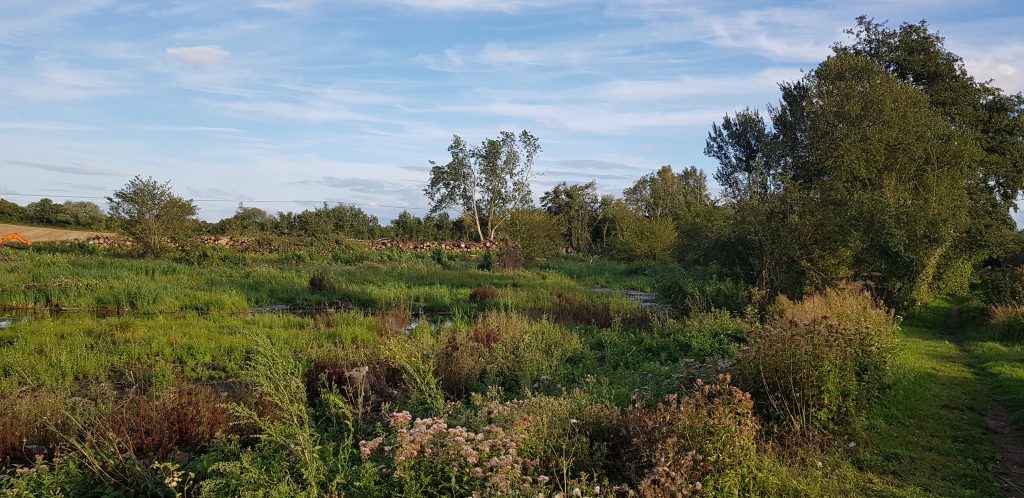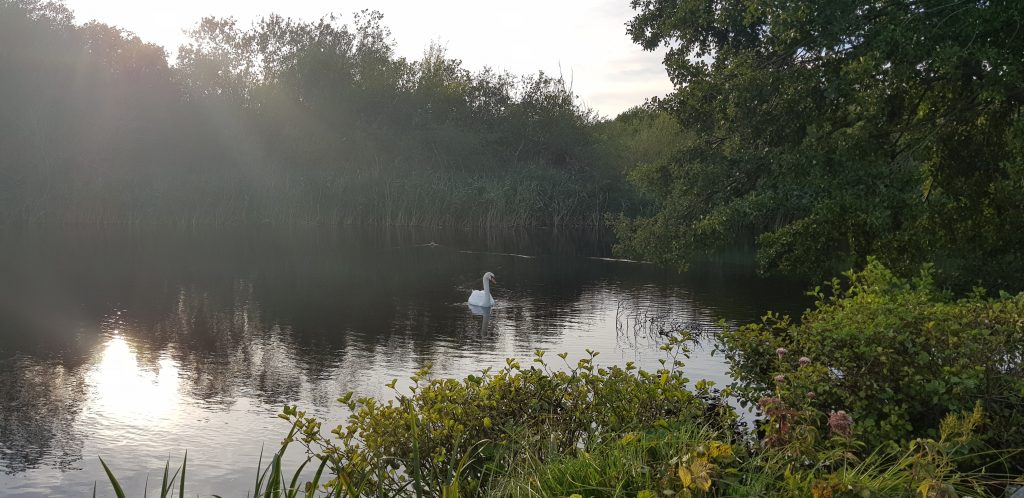Update from the Greywell Hill Estate
Alaska Ecological Contracting finished their part in the restoration of the Fen, leaving a large area of bare mud and a considerable amount of felled alder and poplar. Since when most of the mud has turned green and a lot of wetland birds have enjoyed their summer here.
In the meantime, Estate forester, Tom Elpelt, had to sort very random quality alder and has moved most of the alder either to Down Farm for chipping or into a considerable pile for sale to a wholesale firewood merchant. There was a bit of a delay as Down Farm had run out of room for any more timber.
The Estate has now started on the next phase of the restoration which is to restore the fencing so that cattle can be grazed on the Fen under the management of Hampshire and Isle of Wight Wildlife Trust. In order to get the fencing in, the Estate is coppicing the overstood hazel running along the side of the bridle path (route 703) and will cut back some of the growth encroaching onto the footpath (fp6) adjacent to the Mill Head. The hazel is on very strong stools and will grow again.
There is a cleared piece of ground at the top of the Mill Head and this is to be included in the grazed area, so the fenceline will cross the footpath in two places. There will be two kissing gates in the fence line and these to a standard that can be accessed in a wheelchair.
The first priority is to get cattle grazing as soon as possible, so we are pressing on with getting the Fen fenced. This means that the poplar will probably not be shifted until ground conditions permit in 2021. The current thinking is that it will be chipped on site and moved in bulk trailers to Down Farm. This has two advantages, firstly that chipping is very noisy and the site is a good distance from the nearest house. Secondly, grain trailers will carry more timber in chipped form than a conventional timber trailer and crane and so there will be less tractor movements and wear on the track.
The prime tool in all the work is the Estate’s 8 tonne excavator, driven by Joe Elpelt, which is equipped with tree shears (like a large pair of scissors), post thumper and a cone splitter to break the poplar down to a size that a chipper can handle.



